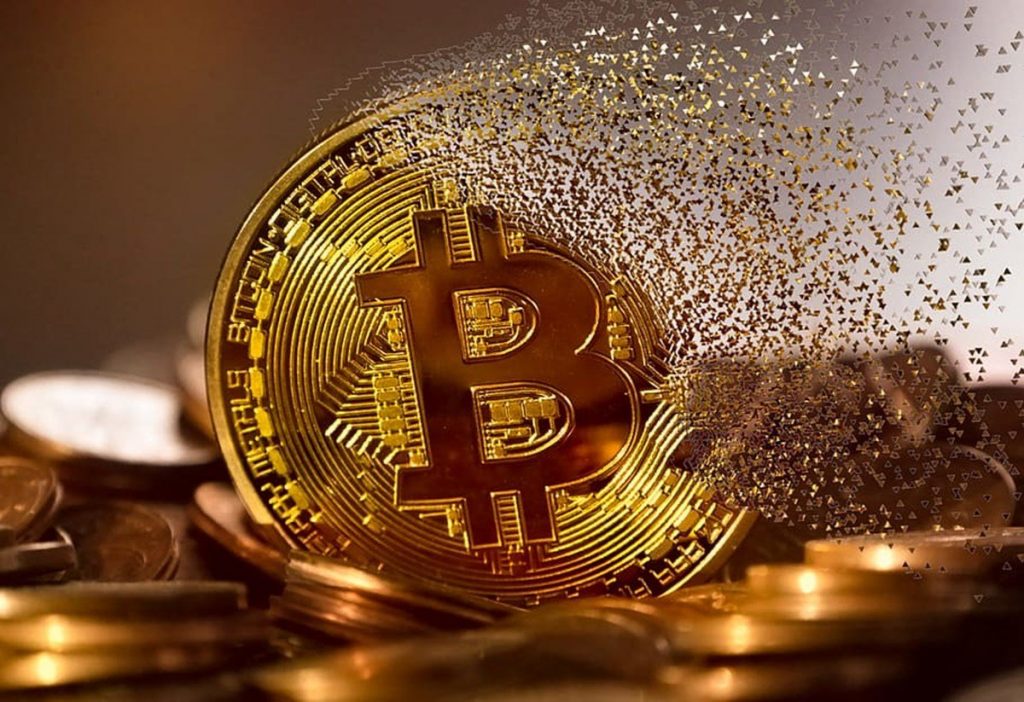Editor’s Note: This is a follow-up article to “The Conservative Case for Cryptocurrency.”
There are two basic types of progressives. One type’s primary objectives are to reduce social power imbalances and help lift up the least advantaged in society. The other type simply wants to control political power hierarchies to engineer society.
In making a progressive case for cryptocurrency, then, it’s important to appeal to the former type. Some progressives who claim to stand for the poor unwittingly support the hierarchies that cause poverty. One such hierarchy is the big one behind the US dollar.
Redistribution: From Poor to Rich
The dollar is not just a piece of paper. It symbolizes a system. And that system benefits the wealthy by design. The Federal Reserve—the Bank of Banks that controls the money supply—actually has the power to tax, in a way. But that taxation power is wholly undemocratic, unaccountable, and falls disproportionately upon the poor.
It’s called inflation.
As Austrian economists define it, inflation is the practice of printing money out of thin air, which robs the people of their purchasing power. True progressives shouldn’t tolerate the practice because it ends up harming hard-working people, especially the poor.

Inflation amounts to a kind of perverse redistribution from poor to rich, because the redistribution works in service of the central banks and their friends in the financial sector. Obviously, inflation works to the advantage of governments, too, not to mention favor seekers who depend on debt spending.
As Dion Rabuoin writes at Axios:
“The Fed-driven economy relies on the creation of trillions of dollars — literally out of thin air — that are used to purchase bonds and push money into a pandemic-ravaged economy that has long been dependent on free cash and is only growing more addicted.”
The problem is that most of these resources stay at the top of the income distribution. Whether in large corporations or in banks, the wealthiest eat first and leave very few scraps. Today much of the inflation shows up as asset prices such as stocks. Otherwise, it shows up in higher prices for food and building materials.
“We are seeing very substantial inflation,” said Warren Buffett recently. Of course, such inflation originates in the central bank’s response to exorbitant federal spending.
This bizarre reality creates cognitive dissonance for some progressives who think the government can do no wrong. But whether we’re talking about missile makers, mega-corporations, or millionaires drawing Medicare from the public trough, there are very few angels writing all those checks in red ink.
Over time, inflation robs the working poor of their meager savings, as day by day every dollar buys less. It’s no wonder, then, that many poor people turn to the very same banks that benefit from inflationary policies. Most end up deep in debt. Thus, when progressives say that capitalism is a system that exploits the poor to benefit the rich, they are right—at least when “capitalism” is defined as a system with central banking at its heart.
Adopt and ‘HODL’
But if we’re all locked in the dollar’s matrix, how is a true progressive to make change?
One way is to adopt cryptocurrencies. Now, I don’t mean any particular cryptocurrency. Some progressives don’t like bitcoin, for example, because its security protocols make high energy demands. Other cryptocurrencies will emerge that make fewer such demands but preserve the security of decentralization.
Now, we’ve all witnessed token traders salivating in speculative greed. This has put some progressives off of cryptocurrencies to the point that it’s hard for them to view these innovations as any sort of saving grace. But when we consider that most cryptocurrencies gain purchasing power over time, we will come to see that—despite speculation—they are an escape from a system that is robbing them.
Since we’re still in the early days of popular adoption, price volatility is an unfortunate byproduct of crypto. In time, though, the volatility is likely to settle down. Some cryptocurrencies, known as “stablecoins” are designed to be, well, stable. (We can also imagine cryptocurrency Index Funds with their own more stable tokens, sort of like a mutual fund, which is less volatile than a single stock.) People will start to understand their cryptocurrency both as an appreciating asset and as money, especially when more and more vendors accept cryptocurrency.
But wait. Can lower-income populations really afford to get into crypto?
Cryptocurrencies vs. Convenience Stores
First, we should define our terms. It’s not perfect, but “low-income” is generally a group of people who can scrape up some disposable income if they’re disciplined. Let’s use Pew Research’s definition, which is anything below two-thirds of the median household income.
Now, anyone who studies poverty knows that it’s expensive to be low-income in America. For example, lower-income folks tend to pay higher overdraft fees, ATM withdrawal fees, and interest rates than the rest of us for various reasons. For better or worse, low-income folks frequently also shop at convenience stores to satisfy many of their wants and needs. Convenience stores charge more on average for so many of the things people buy, whether it’s coffee and doughnuts, cigarettes and vapes, or candy and Monster soda. And it’s not a stretch to think that many low-income people spend $4.00 per day on average for stuff that brings them short-term pleasure, but that they probably don’t need.
What if a low-income person could forgo enough convenient-store junk to adopt some crypto? Let’s say $100 per month.
Now, some might argue that it’s the essence of ‘privilege’ to suggest that lower-income people buy cryptocurrencies. Indeed, at the moment, you more or less have to have a bank account to do so. (And that’s a fair point.) Yet we can’t make perfect the enemy of the good, particularly when we know that people in much poorer countries, such as Venezuela and Lebanon, find a way—especially as people in these poorer countries are experiencing hyperinflation.
So let’s go back to the idea of foregoing $100 per month in convenience-store spending and present a set of options to low-income people.
What would happen if someone adopted $100 per month of a cryptocurrency with a 3 percent increase in purchasing power over 10 years (as opposed to a 3 percent decrease caused by inflation) and saved it? How much would their crypto be worth after 10 years? You can do the math, but the short answer is this: it’s a lot.
Progressives concerned about poverty alleviation—think Sen. Elizabeth Warren or Rep. Alexandria Ocasio-Cortez—should give cryptos a closer look. One of the most effective ways to help low-income people and challenge predatory hierarchies is not to agitate for more debt spending by governments, but instead to create a popular movement in cryptocurrency adoption by the least advantaged.
At the very least, some would be able to form a nest egg that is not really possible in the predatory environments after 2008, in which the taxpayers bailed out the banks and the people continue to live on dollars worth less and less each year.
But that’s not all. Cryptocurrencies have the potential to improve the lot of low-income groups by:
- Providing a means of cheaper remittances between hard-working poor people in rich countries to their friends and family in poor countries.
- Allowing people to bypass intermediaries who might privilege another group over them.
- Providing direct, equal access to gaining capital and assets
- Providing direct, equal access to trustful systems and global markets.
- Providing direct, equal access to legitimating, auditable properties such as identity, provenance, and consensus systems, such as voting.
Cryptocurrencies are still in their infancy, but they have the power to reduce power imbalances and help lift up the least advantaged in society. Indeed, given how many beneficial properties they have, and how they can function as a hedge against inflation alone, the case for cryptocurrencies makes itself.
Max Borders
Max Borders is author of The Social Singularity. He is also the founder and Executive Director of Social Evolution—a non-profit organization dedicated to liberating humanity through innovation. Max is also co-founder of the Voice & Exit event and former editor at the Foundation for Economic Education (FEE). Max is a futurist, a theorist, a published author and an entrepreneur.
This article was originally published on FEE.org. Read the original article.



